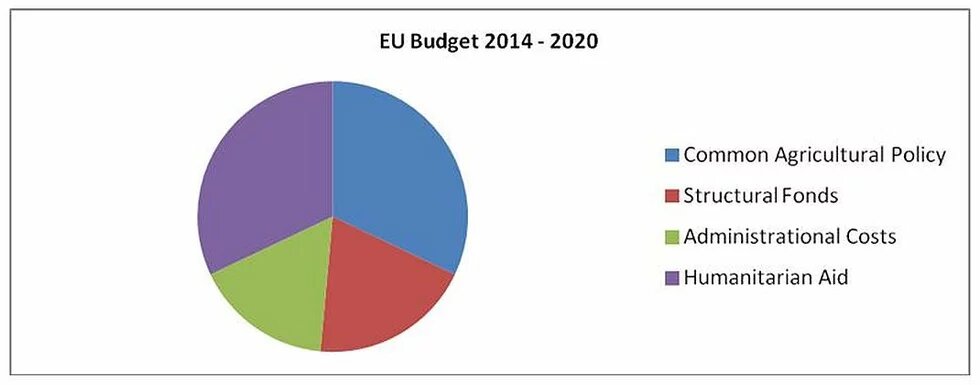
The new EU budget 2014 – 2020
The budget of the EU is allocated for a seven-year term. The current budget, governed under the Multiannual Financial Framework (MFF) 2007-2013, will subside this year. In June 2011, the Commission proposed a first structural outline for the MFF 2014-2020. Last year, the member states entered the negotiations for the overall amount.
However, in a Europe shaken by austerity measures, budget cuts and economic crises, negotiations over a new European budget proved to be a highly contentious matter. The net contributors, including Germany, France, Italy, and the northern European countries pushed for a budget under the €1 trillion mark. Conversely, in fear of losing their benefits, most net beneficiaries, including most southern and eastern European countries as well as the Baltic States advocated for a much higher commitment. The situation was complicated further by a highly anti-European public sentiment in the United Kingdom that coerced David Cameron to take a hardline stance against any budget increases.
After a tough negotiation round, the member states in spring 2013 agreed on an overall budget of €972.2 billion, roughly one percent of the EU27’s combined GDP. With the total volume now confirmed, the structural details of the MFF 2014-2020 are currently being finalized in informal trialogue negotiations between the European Council, the Commission and the Parliament.
EU project funding under the MFF 2014 – 2020
The EU budget 2014 – 2020 contains five headings the money is distributed under: Sustainable Growth, Agriculture, Security and Citizenship, Europe as a Global Actor, and Administration.The 2014-2020 budget suffers from significant budget cuts, amounting to €85 billion. While some programs benefit from an increase in their volume, particularly infrastructure and administration, other budget areas are affected by severe cuts.
Among other programs, the Europe for Citizens program as well as the European Cultural Program, both supporting civil society projects inside Europe, might face cuts by roughly 23%. The Europe for Citizens Program is the only program directly supporting civic engagement on a European level. It also aims to foster dialogue between European citizens and decision-makers on EU policy and European integration. Considering that the commitment for the period 2007 – 2013 was already small with only €215 million, a reduction of around €50 million will have a significant negative impact on the EU Citizens’ Dialogue. Reducing those programs might lead to an even stronger alienation of European citizens from the EU institutions.
The European Council decision also contains cuts of roughly 16% for Budget line 4) “Global Europe”. A common and well coordinated external EU policy will suffer significantly from those cuts. Most importantly for the Heinrich-Böll-Stiftung, financial resources for development cooperation instruments will be frozen at 2007-2013 levels; ignoring the fact that the Arab Spring and other recent developments call for a substantially increased EU engagement with civil society actors in the region.
